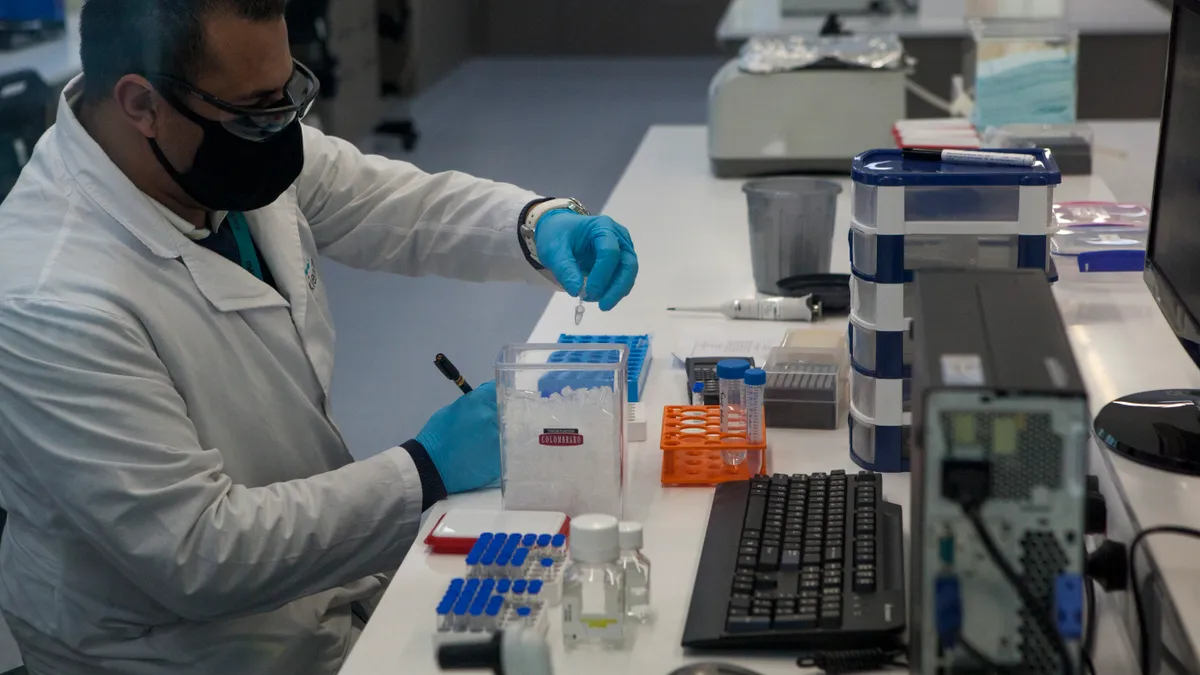AI and machine learning continue to gain acceptance by pharma and biotech companies to accelerate the R&D process and make it more efficient. As a result, companies can capitalize on the resulting data insights to make better and more informed decisions along the entire clinical path.
For this installment of our ongoing series, “PharmaVoice Forecast,” which features predictions and insights from our community of life-science executives, we asked leaders involved in R&D: What’s the top trend you are tracking in the short term?
Here’s what they had to say about how AI, ML, and better data management can provide enhanced clinical insights and improved trial results.
Digitizing operations to advance patient health
“I believe we can better harness collective knowledge and tools across industries to cultivate deeper connections across the healthcare ecosystem that yield faster, greater and more sustainable advancements in patient health. Using different technologies, including AI, for drug discovery and development of our clinical trial models, we’re starting to reach the same level as other industries in terms of how we use digital internally, but we’re still behind when it comes to reaching customers. We need to continue digitalizing our operations to meet our customers where they are while helping patients live their best lives.
For example, new clinical trial design features enable increased flexibility of the timing of study procedures, direct-to-patient shipment of study medications, home nursing in place of on-site visits, telemedicine and use of digital platforms to collect efficacy and safety data.” ~Colin Lake, vice president, head of Digital Business Transformation Neurology, UCB
Accelerating study timelines is a priority
“Acceleration remains a key objective for sponsors and one we continue to address. There is a continued drive to stand up studies faster, which demands technologies with rich, functional capabilities that meet the needs of diverse clinical trials, enable rapid assembly and accelerate delivery through streamlined operational processes.” ~Bill Byrom, vice president, Product Intelligence and Positioning, Signant Health, PharmaVoice 100
AI holds promise to transform drug development and patient care
“Leveraging AI-powered predictive analytics, we can gain insights into patient behaviors before trials even begin, understand how to best help patients stay on track with their treatment, and guide timely, personalized interventions to mitigate risk. We need to track the unseen impact of bias on AI in healthcare. Disruption caused by COVID-19 brought to light longstanding issues of healthcare disparities, and the life-science industry is challenged to re-evaluate the foundation of the AI our patient-care decisions increasingly rely on. AI is only as strong as the diversity of data it’s fed, and today’s developers often train algorithms on small, single-origin data samples. Similar to how new drugs require rigorous approvals to understand their safety profiles, a rigorous evaluation process for AI is needed to understand if it could cause inadvertent harm to underrepresented populations.” ~Rich Christie, chief medical officer, AiCure
It's all about the data
“Harnessing data in healthcare, making it standardized and truly usable, and turning it into insights that solve challenges and break down barriers are absolutely crucial. All aspects of healthcare — from the science to medical care to reimbursement — will improve from the dramatically improved understanding that data-driven insights can deliver. And we must collectively uncover this understanding in ways that respect everyone’s humanity. Health-related data is ultimately personal information, and privacy and security are just as important as the analytics.” ~Amy DuRoss, cofounder and CEO, Vineti, PharmaVoice 100
AI is upending clinical development
“The current evolution of e-clinical to ClinTech, an exciting new category of purpose-built, AI-based clinical insights and automation platforms, which is changing the face of clinical development, is a very exciting transformation for the life-sciences industry. By seamlessly incorporating domain-centric, deep learning/AI systems into COVID-19 vaccine development, the industry was able to bring life-saving therapies to market in record time — less than one year — to turn the tide on the global pandemic. The ‘D’ is finally catching up to the ‘R’ in ‘R&D’ in terms of AI, and the result is the ability to deliver safe, effective drugs to patients faster than ever before.” ~Suresh Katta, founder and CEO, Saama Technologies, PharmaVOICE 100



















